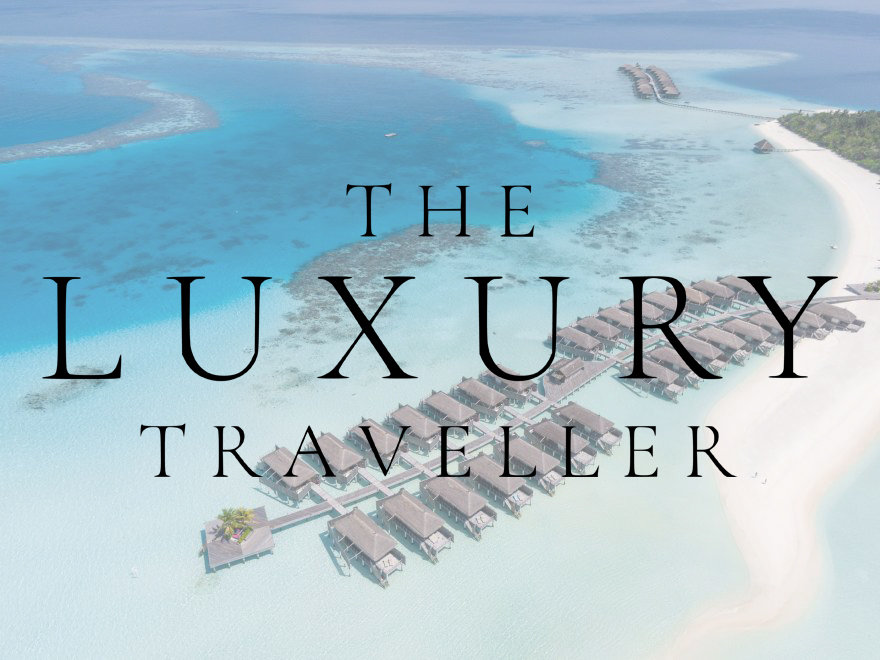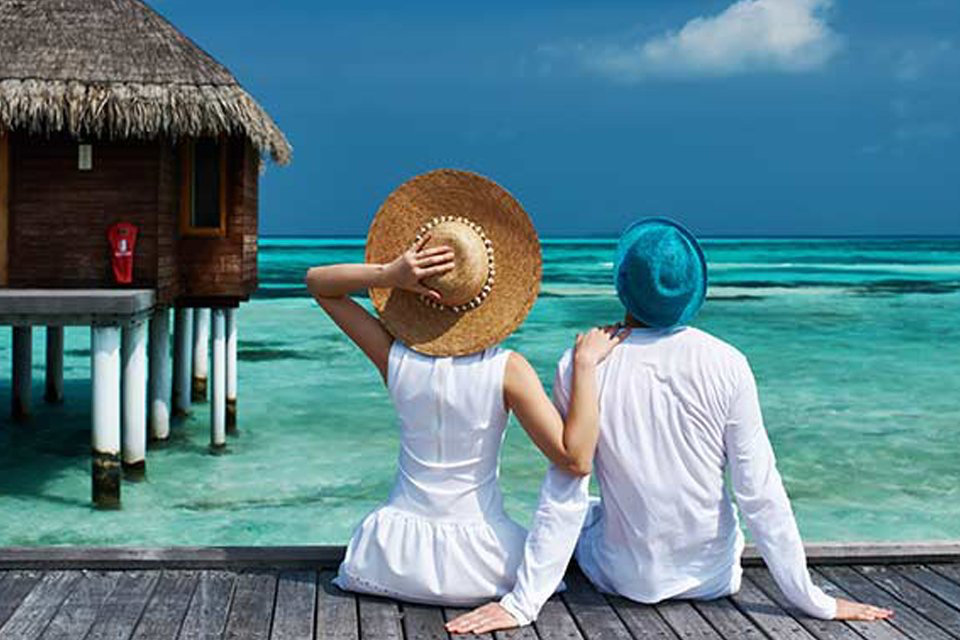
Traveling is more than just exploring new places; it's about making a positive impact on the world. The concept of socially responsible travel, also known as sustainable or ethical tourism, has gained momentum in recent years. Travelers are increasingly seeking meaningful and responsible ways to experience the world while supporting local communities and preserving the environment. In this blog post, we'll embark on a journey to explore the concept of socially responsible travel around the world, discovering how it benefits local communities, the environment, and travelers themselves.
Socially responsible travel goes beyond merely visiting a destination; it's about engaging with local communities and ecosystems in ways that promote long-term well-being and sustainability. The key principles of socially responsible travel include:
Socially responsible travel prioritizes supporting local communities economically, socially, and culturally. It involves collaborating with locals in a way that empowers them and helps preserve their heritage.
Responsible travelers seek to minimize their environmental impact by practicing sustainable activities and supporting eco-friendly initiatives, such as conservation efforts and reducing carbon footprints.
Respecting local customs, traditions, and values is essential for responsible travelers. This often involves learning about the culture and interacting with locals in a respectful manner.
Responsible travel helps channel resources into the local economy, ensuring that tourism benefits the community as a whole.
Various destinations worldwide have embraced socially responsible tourism, and travelers can make a positive impact by visiting these places:
Known for its Gross National Happiness index, Bhutan focuses on sustainable development, environmental protection, and cultural preservation. Travelers can experience the tranquility and traditions of this Himalayan kingdom while supporting its socially responsible policies.
Famous for its eco-tourism initiatives, Costa Rica offers travelers abundant opportunities to explore rainforests, national parks, and pristine beaches while supporting conservation efforts.
Travelers can engage in responsible safaris in Kenya, where ethical wildlife conservation and community engagement are at the forefront. These tours ensure that local communities benefit from the tourism industry. Northstar Travel has been affiliated with Socially Responsible Safaris in Kitchener for many years with Dr. Ryan Snider and his wife Liza Snider.
Iceland's commitment to sustainable travel is evident through its green initiatives, renewable energy sources, and strict conservation policies. Travelers can explore stunning landscapes while
contributing to the preservation of its pristine environment.
Known for its Maori culture, New Zealand offers travelers the chance to learn about and support indigenous communities while enjoying its natural beauty.

Choosing the right accommodation is crucial for responsible travelers. Several options cater to those who want to make a positive impact:
Many hotels around the world have adopted eco-friendly practices such as energy conservation, waste reduction, and the use of sustainable materials.
Staying with local families can be a rewarding experience, offering insight into their culture and providing financial support directly to the community.
Some resorts prioritize sustainability by using renewable energy, minimizing waste, and supporting local communities.
These accommodations are typically located in or near natural reserves and emphasize minimal environmental impact and support for conservation efforts.
Wildlife tourism is a significant part of global tourism, and it presents both opportunities and challenges for responsible travel:
Engaging in wildlife tours led by organizations committed to ethical practices ensures that animals are treated with respect and in their natural habitats.
Responsible travelers avoid activities that involve the mistreatment of animals, such as elephant rides, animal circuses, and the exotic pet trade.
Choose wildlife encounters that contribute to conservation initiatives, such as visiting sanctuaries and supporting anti-poaching efforts.
Traveling responsibly also involves choosing sustainable transportation methods:
Opting for buses, trains, and subways reduces the carbon footprint and supports local public transportation systems.
Exploring destinations on foot or by bicycle is an eco-friendly way to immerse in local culture and minimize environmental impact.
If renting a car is necessary, choose electric or hybrid vehicles to reduce emissions and fuel consumption.
Consider carbon offsetting options to compensate for the emissions generated during travel.
Engaging in responsible activities is a crucial aspect of socially responsible travel:
Many travelers choose to engage in volunteering activities that support local communities, environmental conservation, and social development.
Immerse yourself in local culture by participating in cooking classes, language lessons, and cultural workshops offered by the community.
Support local artisans and businesses by purchasing locally made products and souvenirs, ensuring the money goes directly to the community.
Choose tour operators who are committed to responsible tourism practices, offering authentic, sustainable, and educational experiences.
While responsible travel offers many benefits, it also presents challenges. Some travelers may struggle to find responsible options in certain destinations, and it's essential to address these challenges:
Popular responsible travel destinations can become overcrowded, leading to negative impacts on the environment and local culture. Solutions may include implementing visitor limits and managing peak season crowds.
Responsible travel might be more expensive due to the sustainable practices and fair wages provided to local communities. Travelers can budget for these additional costs, understanding the long-term benefits of their expenditure.
Not all travelers are aware of the concept of responsible tourism. Travel agencies and governments can play a crucial role in raising awareness and promoting responsible travel options.
Ensuring wildlife tourism is ethical and supports conservation is a challenge. Travelers should do their research and choose tours and experiences that prioritize animal welfare.

Socially responsible travel offers travelers an opportunity to explore the world while making a positive impact on local communities, the environment, and their own understanding of the world. From choosing responsible destinations and accommodations to engaging in ethical wildlife encounters and supporting local businesses, responsible travel opens doors to experiences that benefit everyone involved. By choosing to travel responsibly, you can become a conscientious global citizen, leaving a positive footprint wherever you go. So, the next time you plan your journey, consider how you can make a difference through socially responsible travel.

Luxury travel, a term that conjures up images of opulent resorts, private jets, and Michelin-starred dining, has captured the imagination of travelers for decades. However, defining luxury travel goes beyond these stereotypes. It's a multi-faceted concept that encompasses not only extravagant experiences but also a deep sense of exclusivity, personalized service, and the pursuit of authentic, transformative moments. In this blog post, we'll delve into the essence of luxury travel, exploring what truly defines it and why it has become such a sought-after niche within the travel industry.
To understand the concept of luxury travel, we must first trace its evolution. Traditionally, luxury travel was synonymous with ostentation. It revolved around extravagant accommodations, lavish amenities, and indulgent experiences that catered to the world's elite. While such aspects are still integral to luxury travel, the definition has evolved over time.
Today's luxury traveler seeks more than mere extravagance. They desire a deeply personalized experience that caters to their individual preferences. This means customized itineraries, exclusive access to cultural sites, and tailored services that anticipate their every need.
Luxury travelers increasingly value authenticity over conspicuous consumption. They seek to connect with local cultures and communities, opting for immersive experiences that allow them to go beyond the tourist facade and delve into the heart of a destination.
Privacy has become paramount in luxury travel. Whether it's secluded villas, private islands, or discrete check-ins, many luxury travelers crave solitude and exclusivity.
The modern luxury traveler is health-conscious and environmentally aware. Wellness retreats, eco-friendly accommodations, and responsible travel practices have become important facets of luxury travel.
Luxury travel, at its core, is about transcending the ordinary and curating exceptional experiences that cater to individual desires and aspirations. Here are some key elements that define luxury travel:
Luxury travelers expect top-notch accommodations that offer comfort, style, and unique features. Whether it's a lavish suite in a high-end hotel or a private villa overlooking the ocean, the accommodation is often the cornerstone of the luxury travel experience.
Fine dining is a hallmark of luxury travel. It's not just about gourmet cuisine but also the ambience, service, and the opportunity to savor local flavors in a memorable setting. Many luxury travelers seek out Michelin-starred restaurants or immersive culinary experiences.
The true essence of luxury travel lies in the impeccable service provided. From dedicated concierges to butlers and private guides, the level of personal attention and care is unparalleled. Luxury travelers often form lasting connections with the staff who anticipate their needs and preferences.
Luxury travel offers exclusive, behind-the-scenes experiences that are not accessible to the average traveler. This might include private tours of historical sites, intimate encounters with wildlife, or VIP access to cultural events.
Many luxury travelers prioritize their well-being during their journeys. High-end spas, fitness centers, and wellness programs are common features of luxury accommodations. Some even offer holistic wellness retreats to rejuvenate the mind, body, and soul.
Rather than simply ticking off tourist attractions, luxury travelers seek meaningful cultural immersion. This could involve private meetings with local artisans, traditional cooking classes, or participating in local festivals.
Luxury travel often includes elements of privacy and seclusion. Whether it's a remote wilderness lodge, an exclusive island resort, or a discreet villa, the ability to escape the crowds and enjoy solitude is highly valued.

The conscientious luxury traveler also seeks out sustainable practices. Eco-friendly accommodations, responsible wildlife encounters, and support for local communities are important considerations.
Luxury travel isn't just about the tangible aspects like lavish accommodations and gourmet meals; it's also a mindset. Luxury travelers approach their journeys with a sense of anticipation and a willingness to invest in experiences that enrich their lives. Here's a deeper look at the luxury traveler's mindset:
Luxury travelers understand the value of time. They are willing to pay for convenience, skip lines, and avoid hassles to maximize their time enjoying the destination.
Luxury travelers are inherently curious. They seek to explore new horizons, immerse themselves in diverse cultures, and continuously expand their knowledge of the world.
The allure of exclusivity and the feeling of being a VIP are strong motivators. Luxury travelers relish in knowing they have access to experiences that few others can enjoy.
Luxury travelers prefer quality over quantity. They'd rather have a few exceptional experiences than cramming their itineraries with too many activities. It's about savoring each moment.
Luxury travelers prioritize creating lasting memories over collecting souvenirs. They value experiences and the stories they can share over material possessions.
A love for art, culture, and history often drives luxury travelers. They visit museums, attend performances, and engage with local artisans to gain a deeper understanding of the places they visit.
In the modern world, technology plays a significant role in shaping the luxury travel experience. Here are a few ways in which technology has influenced luxury travel:
Luxury travelers can use high-end travel booking platforms to find and reserve accommodations, flights, and experiences that align with their preferences. These platforms often offer exclusive access to luxury properties and services.
Staying connected is essential for luxury travelers. High-speed internet, smartphones, and communication apps ensure they can keep in touch with loved ones and access information while on the go.
Technology enables personalization like never before. Hotels and tour operators can use data and AI to customize experiences based on a traveler's past preferences and behaviors.
Luxury travelers can use VR and AR to preview accommodations and destinations before booking. This immersive technology provides a sense of what to expect, enhancing the anticipation of the trip.
High-tech security measures, from biometric authentication to advanced surveillance systems, help ensure the safety of luxury travelers during their journeys.
Luxury travel is a multifaceted concept that goes beyond the clichés of champagne and limousines. It's about curating exceptional experiences that cater to individual desires and aspirations. From personalized service and exquisite dining to cultural immersion and sustainability, luxury travel encompasses a wide range of elements. It's also a mindset that values time, exploration, exclusivity, and the creation of lasting memories.
In the modern era, technology has played a significant role in shaping the luxury travel experience, providing tools for booking, communication, personalization, and even virtual exploration.
As the world continues to evolve, so does the definition of luxury travel. Today's luxury travelers are increasingly conscious of sustainability and wellness, seeking experiences that align with their values. Ultimately, luxury travel is about transcending the ordinary and embracing the extraordinary.
